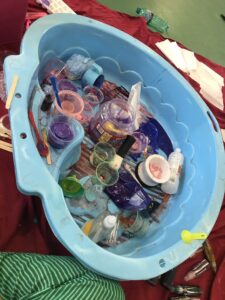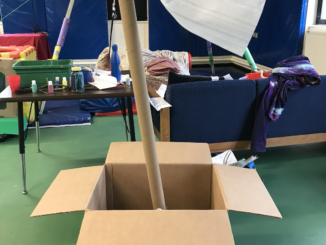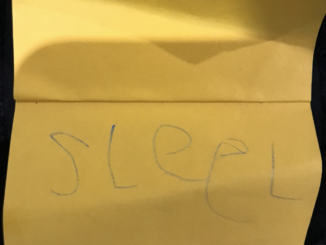Intellectually, I am aware that “science” does not mean “mixing a bunch of bubbling purple liquids together”.
But like, doesn’t it feel like sometimes it SHOULD?
We did “science” today in my OT room. (I accidentally referred to us as wizards and our work as potions a couple of times and was promptly corrected.)

I have been saving up a pile of super-cheap or super-discounted bath bombs and bath salts for a long time, in addition to having lots of baking soda, cornstarch, conditioner, and soap left over from my sensory summer camp. We have also made watercolours out of dried-out markers. I set all of them out beside a kiddie pool.
We worked on scooping, pouring, pinching, measuring, etc — important skills related to fine motor ability (moving the small muscles of the hand), motor planning ability (planning a movement in your brain and making your body carry it out), visual motor ability (seeing something and then using your body to interact with what you saw). Even just to pour a teaspoon of baking soda into a larger container of goo means that you have to make a plan in your head, move your hand with precision, line it up with the large container, pour it in such a way that it all falls into the goo and doesn’t fall out the sides, etc. Multiply that by a thousand tiny interactions with both hands going at once!
We worked on writing — mostly in the form of me modeling why writing can be occupationally meaningful — something I’ve written about to great extent in the past. Many, if not most, kids who have “writing goals” on their IEP don’t see writing as something humans do that is inherently meaningful in any way; they see writing as something children are forced to do by adults for school. So, I model writing (without expecting the child to write) in every single OT session if I can. I wrote down steps of our “science process” while narrating out loud what I was writing. When my kid asked me a question, I made a big deal of how I couldn’t remember off the top of my own head, and then consulting what I had written, and then answering their question.
(I did not write down every step of the process. What I wrote was really not a “good” finished product. What I wrote was for the purpose of showing why writing is meaningful. It doesn’t have to be an assignment-level “thing to turn in” :))
Then the child wanted to write (!!!!!) because I had given them the idea to: they took the sharpie and wrote made-up names of their finished products on the bottles and containers themselves. Like, I encouraged them to make up a name for this blue goo they created and they named it and wrote it on the bottle. Then I encouraged them to name the purple goo…etc.
This was also a sensory-HEAVY exploration. The cheap bath bombs we crushed up with a mortar and pestle (more fine motor and hand strengthening!) had strong scents. There was nothing to touch that wasn’t sticky or gooey! There were many colors and glitters to see. It was rich, vibrant, sensory play in the middle of a tendency toward paper/tabletop activities in any given school day.
We played on the floor, crouching or kneeling most of the time, working on strengthening our core muscles to hold ourselves up as we worked.
Science may not really be bubbling purple goo…but there were a lot of scientific reasons why what we did today was powerful, full-body learning.



